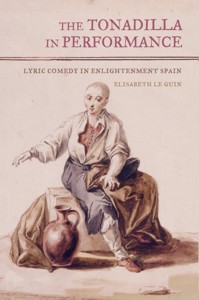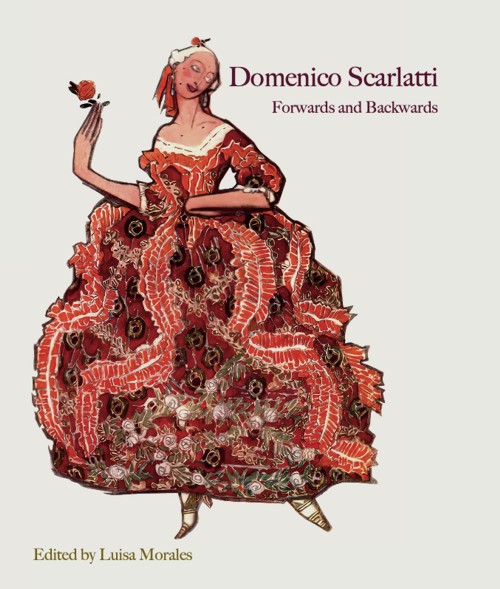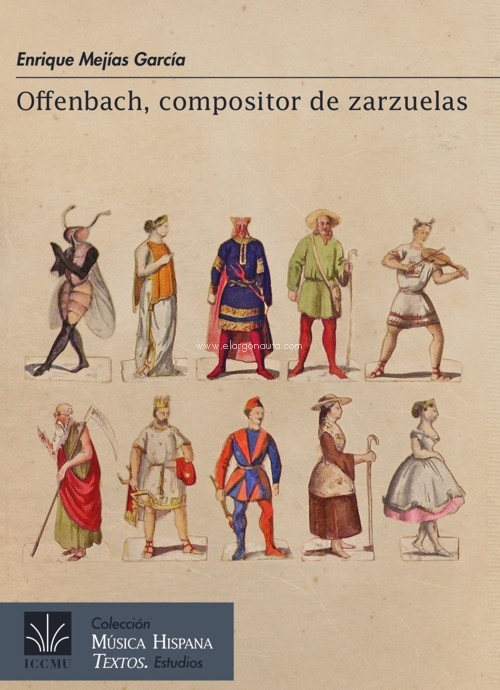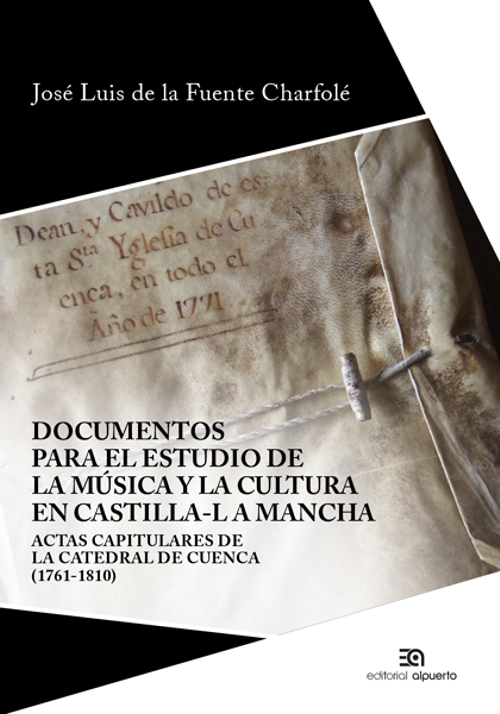
The Tonadilla in Performance. Lyric Comedy in Enlightenment Spain
Le Guin, Elisabeth
University of California Press. 2014Ficha técnica
- EAN: 9780520276307
- ISBN: 978-0-520-27630-7
- Editorial: University of California Press
- Fecha de edición: 2014
- Encuadernación: Cartoné con sobrecubierta
- Dimensiones: 16x23,5
- Idioma: Inglés
- Nº páginas: 408
No disponible temporalmente
Disponibilidad sujeta a la información del editorPVP. 79,95€
Añadir a la Lista de deseos
The tonadilla, a type of satiric musical skit popular on the public stages of Madrid during the late Enlightenment, has played a significant role in the history of music in Spain. This book, the first major study of the tonadilla in English, examines the musical, theatrical, and social worlds that the tonadilla brought together and traces the lasting influence this genre has had on the historiography of Spanish music. The tonadillas' careful constructions of musical populism provide a window onto the tensions among Enlightenment modernity, folkloric nationalism, and the politics of representation; their diverse, engaging, and cosmopolitan music is an invitation to reexamine tired old ideas of musical "Spanishness." Perhaps most radically of all, their satirical stance urges us to embrace the labile, paratextual nature of comic performance as central to the construction of history.
An Ahmanson Foundation Book in the Humanities.
CONTENIDO:
List of Illustrations
A Note on Editions and Translations
Acknowledgments
- Introduction: Indispensable Ornaments
The Matter at Hand
?A Horrible Storm?: Nationalist Historiography and the Tonadillas
The Nature and Purpose of This Book
Kom/oide
1. An Evening at the Theater: An Imaginary Re/creation
The First Act (Which Here They Call ?Jornada?)
Sainete: El Simple Discreto
Tonadilla: El Pintor y la Vieja
La Niteti: Second Jornada
Sainete (Entremés): La Verdad Desnuda
Tonadilla: La Avellanera y Dos Franceses, by Pablo Esteve
2. Players
The Companies
Training in Acting
Women in the Theater
Blas de Laserna, La Compositora (1777?1778)
Rehearsals
Players and Literacy
Oral and Aural Learning and Acting
Actor-Players and Musician-Players
The First Violin for Dances and Tonadillas
The Music Master
The Copyist
The Apuntador (?Apunte?)
Singing Style
Improvisation
Pablo Esteve, La Desdicha de las Tonadillas (1782)
3. Rhythms
Three Italian Styles
The Mediterranean Roots of Galant Style
Coplas and Paired Phrasing
Luis Misón, La Chinesca (1761)
Blas de Laserna, La Cómica y la Operista (1783)
The Italian and ?el Ytaliano?
The Galant as the Unmarked
Training in Composition
The Seguidilla(s)
Boleras in the Allgemeine musikalische Zeitung
Minguet e Yrol, Arte de Danzar a la Francesa (1758)
Dancing the Seguidillas
Seguidillas as Populist Symbol
Ramón de la Cruz, El Pueblo Quejoso (1765)
Paradox of the Seguidillas
Seguidillas in the Tonadillas
Blas de Laserna, La Fuga de la Pulpillo (1784)
Blas de Laserna, La Lección de Música y de Bolero (1803)
- Intermedio: On the Stage of the Metropolis
Metropolitan Solipsism
Enter la Mandinga
The Manguindoy
Historical Sketch
Treacherous Mirrors: Symbols of an Unfinished Conquest
The Spanish Rejection of Musical Mimesis
Exit la Mandinga
Cadence but Not Closure
4. Bandits
Jácaras, Jaques, and Social History
Bandoleros and Early Andalucismo
Majismo and Bandolerismo
María Ladvenant
Chinita (Gabriel López)
Jovellanos Is Incensed
Anonymous, El Guapo (Bocanegra) (ca. 1767)
Resistance, Rebellion, Revolution
Anonymous, La Jácara (1767)
Improvised Playing and Written Composition
Thirty Years Later
Blas de Laserna, Los Contrabandistas (between 1794 and 1803)
Manuel García, ?Yo Que Soy Contrabandista? (1805)
5. Late Tonadillas
The Grand Tragedy: Historical Sketch, 1793?1813
Between the Acts: The Madrid Theaters, 1793?1813
History as Dramatic Material
General Features of Late Tonadillas
Tonadilla Canonicity
Blas de Laserna, El Ensayo (1805)
Another Afternoon at the Theater: Teatro del Príncipe, 25 August 1806
Isidoro Máiquez and Antonia Prado
Manuel Quintana, Pelayo (1805)
Ramón de la Cruz, El Triunfo del Interés (1777)
Pablo del Moral, El Page Tonto (1799?1809)
Fin de Fiesta: Las Músicas
La Raboso
Blas de Laserna, Las Músicas (1779)
The Limits of Re/creation
Appendix. Longer Music Examples
Notes
Bibliography
Index





